Original Title: The「Trump Pump」: How Crypto Lobbying Won Over a President
Original Source: David Yaffe-Bellany, Kenneth P. Vogel, The New York Times
Original Translation: Bitpush
Just over a year ago, in a lavish conference room at Mar-a-Lago, David Bailey and a group of Bitcoin executives pitched Bitcoin to Donald J. Trump. They were looking for a "savior."
For years, cryptocurrency companies faced severe crackdowns in Washington, D.C.—a series of lawsuits, regulatory attacks, and prosecutions that threatened the industry's survival. Mr. Trump was not an obvious sympathizer; he once dismissed Bitcoin as a "scam." However, he welcomed these executives to his private club in Florida, as the industry suddenly caught his attention. At the time, Bailey was mobilizing crypto investors to vote for Trump and urging his colleagues to raise $100 million for the election.
At Mar-a-Lago, Mr. Bailey brought representatives from several large Bitcoin mining companies—a sector known for its massive energy consumption, which had raised noise complaints and environmental concerns. They pitched the economic benefits of Bitcoin to Trump and then made a bold request: could Mr. Trump post a supportive message on his social media site?
According to a copy of the meeting agenda reviewed by The New York Times, the proposed wording was listed at the bottom of the agenda's bullet points. Mr. Bailey, who runs the digital currency company BTC Inc., recalled in an interview that Trump said he would "consider" it, "we had no idea if it would happen."
That evening, Trump posted on Truth Social a message that was identical to the one proposed by the executives: "We want all remaining Bitcoin to be made in the USA!!! This will help us achieve energy dominance!!!" This post was one of the earliest successes in a high-stakes lobbying effort for the crypto industry. The campaign poured massive funds into Trump and reaped substantial rewards.
Since Trump's election, the price of Bitcoin has soared to over $100,000, making a fortune for the executives who supported his campaign. Crypto advocates, who had been sidelined in Washington during the Biden administration, now found themselves surprisingly close to the Trump White House, which quickly lifted regulatory crackdowns on the industry. The federal government also adopted a comprehensive pro-crypto policy that could disrupt the U.S. financial system for decades to come. All of this stemmed from one of the most intense lobbying battles in recent history.
For months, industry executives, professional lobbyists, campaign staff, and Trump's business partners and family members meticulously orchestrated a decentralized but remarkably effective "influence operation" that transformed Trump from a vocal Bitcoin skeptic into one of the most important supporters of the crypto space. This influence operation, while legal, stood out as particularly striking by Washington's standards, combining the president's personal interests with strategies long used by corporate lobbyists.
Maxine Waters, the top Democrat on the House Financial Services Committee and a California congresswoman, said in an interview: "Nothing compares to what I'm seeing now. The scale of funding is simply unimaginable." White House spokesperson Harrison Fields stated in a statement that the Trump administration was "fulfilling the president's commitment to make America the global crypto hub by promoting innovation and economic opportunity."
Many of Trump's allies emphasize that he has always been willing to listen to various viewpoints—but the final significant decisions are made by him alone. "No one can persuade Trump, except Trump himself," Bailey said.
Embracing the "Orange Pill": From "Scam" to "Modern Art or Whatever"
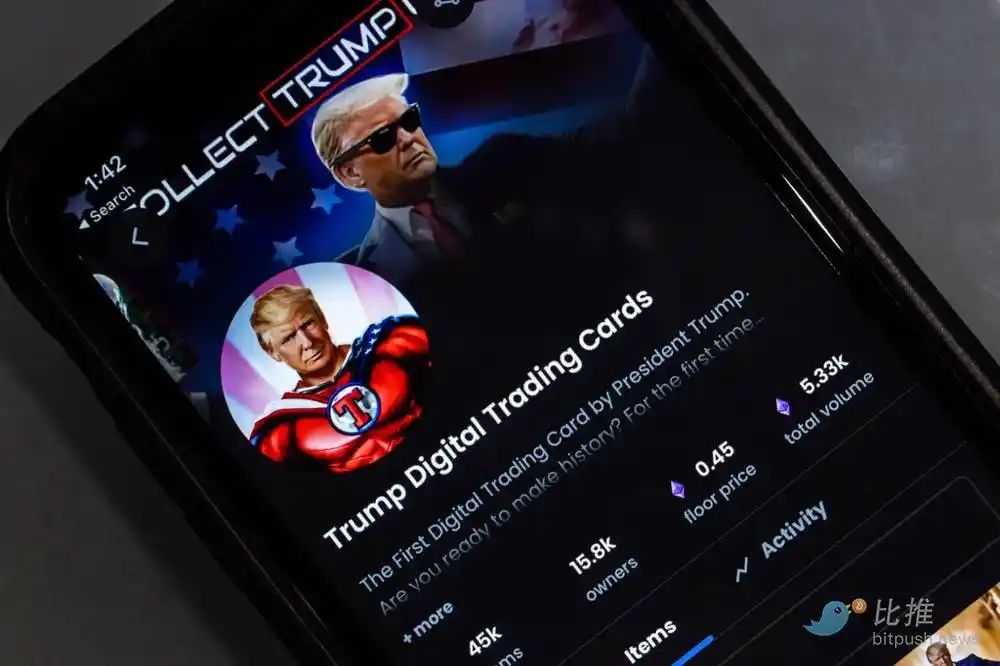
Donald J. Trump launched a series of Trump-branded non-fungible tokens (NFTs) in 2022, persuaded by his long-time business partner Bill Zanker. These NFTs sold out almost immediately.
Crypto enthusiasts have a term for the process of converting Bitcoin skeptics into believers, which they call "orange pilling," referring to Bitcoin's iconic color and a scene from the 1999 film "The Matrix."
Trump was a primary target. In the past, he had called cryptocurrencies "not money" and "a mirage." But the president is known for his flexible views on many topics. Crypto supporters just needed to find the right information and the right messenger.
Trump's attitude toward cryptocurrencies began to soften after he engaged with his long-time business partner Bill Zanker. In the 1980s, Mr. Zanker founded a for-profit education company, "Learning Annex," which offered lectures by celebrities, including Trump, on how to succeed in life and business. Mr. Zanker later co-authored a book with Trump and ventured into various other investments, including selling massage services and fitness equipment.
By 2022, Mr. Zanker had rebranded himself as a crypto entrepreneur, pitching Trump a series of non-fungible tokens (NFTs)—collectible digital images based on crypto technology, akin to baseball cards from the internet age. Each image featured a cartoonish Trump dressed as an astronaut, cowboy, or superhero. Zanker told him these NFTs could generate up to $100 million in revenue.
These NFTs went on sale in December 2022, marketed as "Trump Digital Trading Cards," and sold out almost immediately. (According to a financial disclosure document submitted last year covering the first few months of 2023 and 2024, Trump earned over $7 million from NFT sales.)
About a year after the initial sale, in November 2023, NFT buyers were invited to Mar-a-Lago to meet Trump. This was a pivotal moment in Trump's transformation, as he promoted crypto investment to a group of supporters for the first time.
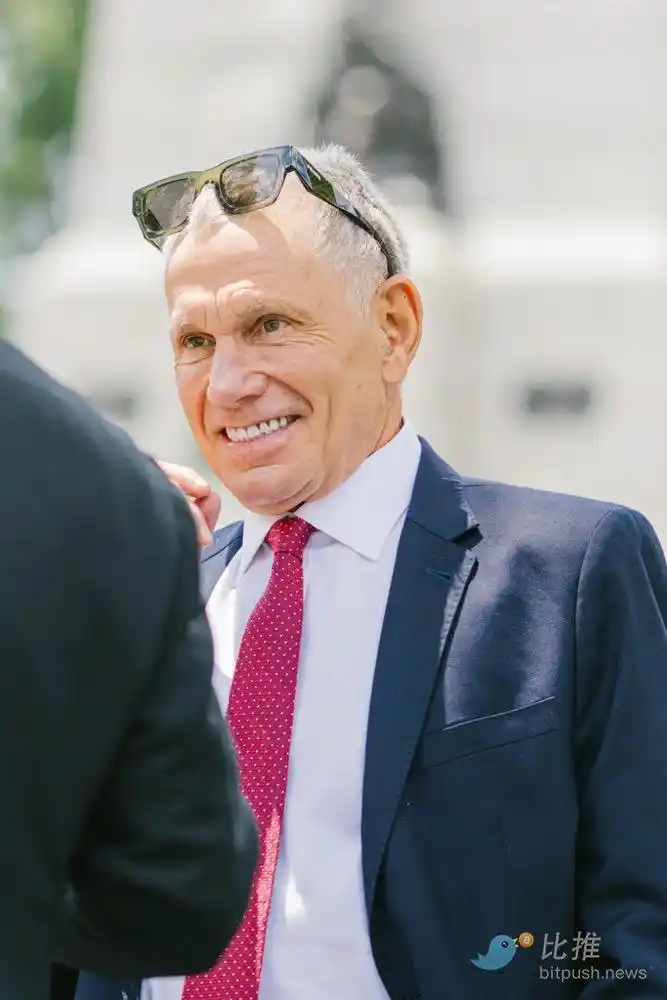
Over the years, Zanker collaborated with Trump in various business ventures, and by 2022, he had transformed into a cryptocurrency entrepreneur.
According to recordings obtained by The New York Times, while speaking to guests, the then-"former president" Trump seemed uncertain about how to describe the peculiar new financial product he was promoting—"modern art or whatever," he said. But he was confident he made a lot of money from these images sold at $99 each.
"They sold out in less than a day," Trump said. "I could have sold them for $199, $299, $399, $499." In early May 2024, Trump held another event at Mar-a-Lago for NFT holders as his presidential campaign intensified. During a free Q&A session, a guest asked Trump if supporters could donate to the campaign using digital currency. According to a recording obtained by The New York Times, Trump sounded somewhat uncertain but made a promise.
"If not," he replied, "I will make sure you can." About two weeks later, Trump's campaign team officially announced the policy: they would accept cryptocurrency donations.
"Courtship" During the Campaign: The Crypto Industry Seeks Political Allies

Trump's Mar-a-Lago, where countless meetings and fundraising dinners attracted numerous cryptocurrency executives. Credit… The crypto industry needed more than just the next president to accept their money. Executives were looking for a political advocate. The cryptocurrency industry needed the next president to do more than simply accept their money; executives were searching for a political leader.
During Joe Biden's term, the U.S. Securities and Exchange Commission (SEC) filed lawsuits against several major crypto companies, leading to years of courtroom battles. Massachusetts Democratic Senator Elizabeth Warren convened an influential group of lawmakers who believed cryptocurrencies posed fundamental dangers to the economy. Requests made by the industry to Biden's campaign team largely ended in failure.
Thus, in early 2024, a small group of crypto executives began courting Trump.
Here are key figures who had a significant impact on cryptocurrency policy during Donald Trump's presidency and campaign:
David Bailey
- Identity: CEO of BTC Inc.
- Role: Active Bitcoin advocate, organized large industry conferences, and successfully facilitated Trump's supportive post about Bitcoin mining on Truth Social.
David Sacks
- Identity: Silicon Valley venture capitalist, White House AI and crypto czar
- Role: Principal architect of Trump administration tech policy, appointed as "A.I. and Crypto Czar."
Brad Garlinghouse
- Identity: CEO of Ripple
- Role: Head of Ripple, actively lobbied the Trump administration to include XRP in the national crypto reserve.
Stuart Alderoty
- Identity: Chief Legal Officer of Ripple
- Role: As a core figure at Ripple, participated in lobbying efforts directed at Trump alongside Brad Garlinghouse.
Charles Hoskinson
- Identity: Founder of Input Output
- Role: Notable crypto executive, despite being canceled from a meeting with Trump for reasons, he and his company still sought to influence crypto legislation and policy.
Paul Manafort
- Identity: Former Trump campaign chairman
- Role: As a long-time ally and advisor to Trump, helped connect crypto industry figures with Trump.
Bill Zanker
- Identity: Trump's long-time business partner
- Role: Successfully persuaded Trump to launch the NFT series, an early advocate for Trump's engagement with cryptocurrency and understanding its business potential.
Tracy Hoyos-López
Identity: Bitcoin advocate, former prosecutor
Role: Has a personal network of relationships and works closely with David Bailey to help him connect with the Trump team.
Brian Ballard
Identity: Major Trump fundraiser and lobbyist
Role: Bridges connections between crypto companies and the Trump administration through his lobbying firm and fundraising network.
Reince Priebus
Identity: Former White House Chief of Staff
Role: Influential within Trump's circle, providing consulting and assistance to the crypto industry.
Eric Trump
Identity: Trump's second son
Role: As a member of the Trump family, involved in the family's crypto business activities, such as World Liberty Financial.
In this effort, Mr. Bailey took the lead, organizing one of the largest industry conferences. He worked closely with Tracy Hoyos-López, a Bitcoin advocate and former prosecutor with valuable personal connections: her father is a friend of Paul Manafort, the chairman of Trump's 2016 campaign team.
Mr. Manafort helped Bailey arrange the first meeting with Trump at Trump Tower in May 2024. "Paul saw a political opportunity," Mr. Bailey said. "He is a very supportive person of Bitcoin."
At the time, Trump was in the midst of his criminal trial in Manhattan, which involved illegal campaign contributions, arriving at Trump Tower after a long day in court.
Three other crypto advocates attended alongside Mr. Bailey. They believed that crypto investors could become a significant voting bloc, comparable to supporters of the gun industry. They also pointed out that Ms. Warren was one of their industry's main opponents.
Mr. Bailey said he had shown a chart displaying the rise in Bitcoin's price during Trump's first term. He called it the "Trump Pump." Mr. Bailey recalled that Trump happily repeated the term.
Five days later, Trump spoke at the Libertarian National Convention, promising to "stop Joe Biden from attacking cryptocurrency" and "keep Elizabeth Warren and her cronies away from your Bitcoin." Soon, millions of dollars in crypto funds began flowing into Trump's campaign.
The founders of Kraken and Gemini, two crypto trading platforms that had been sued by the SEC, each donated over $1 million to pro-Trump groups. In June, venture capitalist David Sacks hosted a fundraising event for Trump at his home in San Francisco, where the candidate dined with a group of executives, including a senior lawyer from Coinbase, the largest trading platform in the U.S. (another SEC target).

David Bailey, CEO of digital currency company BTC Inc., successfully persuaded Trump to post on Truth Social expressing support for Bitcoin mining. Credit… Mr. Bailey was also actively seeking support. He arranged for Bitcoin mining executives to visit Mar-a-Lago in June and stated that he had raised $30 million to support Trump's campaign efforts.
More importantly, he secured Trump's participation as the keynote speaker at the annual Bitcoin conference held in Nashville. This event, organized by Mr. Bailey's company, was expected to attract tens of thousands of crypto enthusiasts—a tempting potential supporter base.
Two weeks before the speech, Trump survived an assassination attempt at a campaign rally in Butler, Pennsylvania, where he was shot in the ear. But he did not waver, keeping his promise to the Bitcoin faithful. "He made sure his team called us to let us know that no matter what— even if the sky fell—he would come to the event," Hoyos-López said on a crypto podcast this year.
As the conference approached, Mr. Bailey learned that Wyoming Republican Senator and long-time crypto advocate Cynthia Lummis planned to introduce a bill calling for the establishment of a national Bitcoin reserve, akin to a "Fort Knox" for the digital age. Mr. Bailey was very interested. A federal reserve would grant government recognition to this long-ignored industry in Washington, elevating Bitcoin to the status of strategic assets like gold and oil. He requested that Trump's campaign team endorse the proposal.
Trump delivered once again. In front of thousands of cheering supporters in Nashville, he promised to establish a "strategic national Bitcoin reserve." Trump declared, "I will be the pro-innovation, pro-Bitcoin president that America needs."
The "Power Struggle" After Victory: The Power Games in the White House Crypto Circle
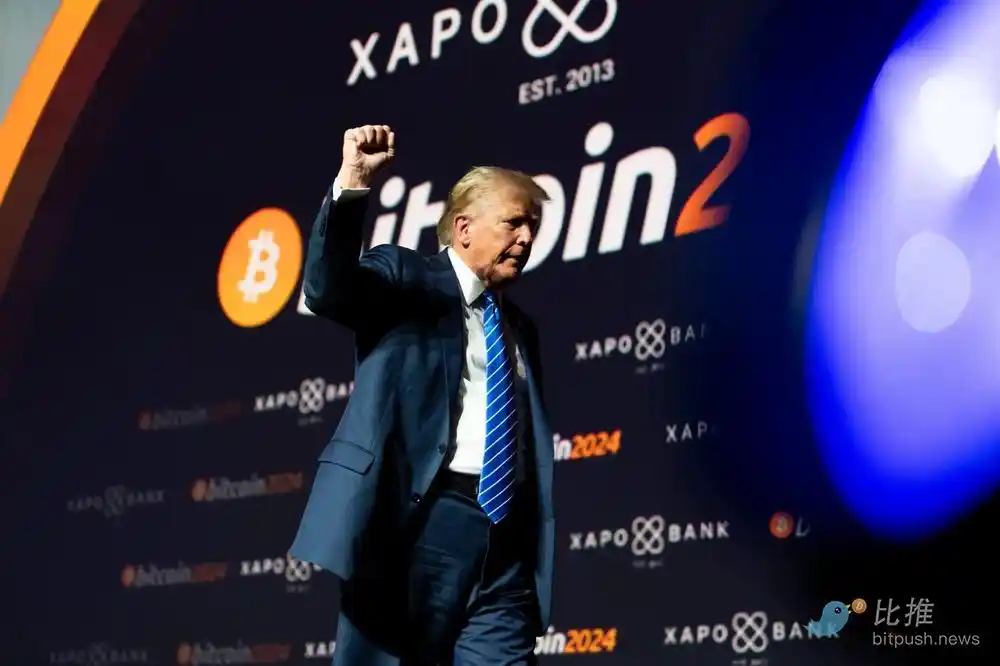
If Trump's "orange pilling" began with behind-the-scenes influence operations during the presidential campaign, it transformed into a public performance after his victory in November. Less than a month after being elected, Trump chose David Sacks as his "A.I. and Crypto Czar," responsible for managing the government's technology policy.
However, nearly every figure in the crypto world was vying for a direct opportunity to enter the White House. Crypto companies and their executives spent $9.9 million on lobbying in the first three months of 2025.
Days after Trump's inauguration, Coinbase, which donated $1 million to the inauguration fund, announced the appointment of Trump campaign official Chris LaCivita to its global advisory board. According to three individuals familiar with the industry, Paul Manafort, who was convicted in 2018 on criminal charges related to foreign lobbying and later pardoned by Trump, began advising crypto interests on how to navigate the president's circle.
Arguably, the most active Trump "pursuer" was Ripple, the crypto company providing cross-border payment services that had battled the SEC in court for years. In January of this year, Ripple donated nearly $5 million to Trump's inauguration committee—making it the second-largest donation received by the committee.
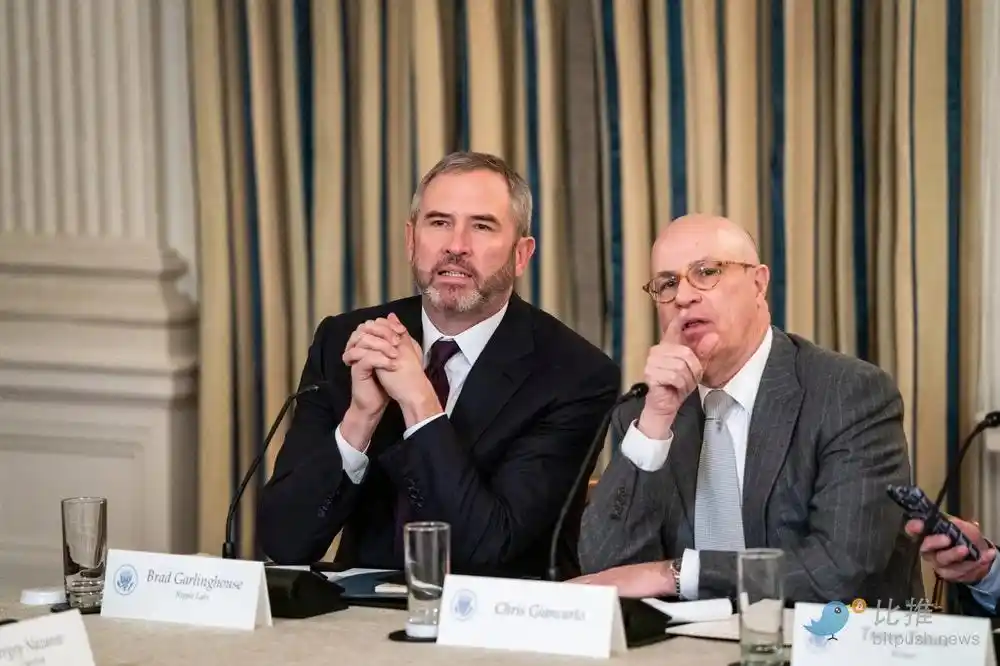
Brad Garlinghouse, CEO of the cryptocurrency company Ripple (left). Ripple donated nearly $5 million to Trump's inauguration committee—making it the second-largest donation received by the committee—and spent $400,000 on lobbying in the first three months of this year. Credit…
In the first three months of 2025, Ripple spent another $400,000 on lobbying, most of which went to two companies closely connected to Trump: Ballard Partners, run by major Trump fundraiser Brian Ballard; and Michael Best Strategies, whose advisory board includes Mr. LaCivita and former White House Chief of Staff Reince Priebus.
In a January interview, Ripple CEO Brad Garlinghouse told The New York Times that he had encouraged Trump and his advisors to expand the initial Bitcoin reserve proposal made in Nashville. He hoped the U.S. would also reserve other types of cryptocurrencies—including Ripple's signature token, XRP.
Ripple executives heavily promoted their dinner with Trump on social media and posted photos with the president-elect. "The beef bourguignon was delicious," wrote Ripple's Chief Legal Officer Stuart Alderoty.

Some industry colleagues of Ripple, such as prominent crypto executive Charles Hoskinson, were outraged by the company's massive spending to establish influence.
Some peers in the industry expressed dissatisfaction. Notable crypto executive Charles Hoskinson mocked Ripple's executives. He wrote on social media that they "spent $5 million to have dinner with Trump," referring to Ripple's substantial donation to the inauguration committee.
Mr. Hoskinson has his own policy agenda. His company, Input Output Global, donated $250,000 to Trump's inauguration committee, and he is eager to shape crypto legislation on Capitol Hill. After the inauguration, Mr. Hoskinson paid $1 million to a political action committee aligned with Trump to attend another fundraising dinner at Mar-a-Lago.
But on his way to the March 1 event, he received some surprising news. His invitation was canceled. He was told there was an issue with his Secret Service background check. Mr. Hoskinson received a refund. However, he stated in an interview that he was still waiting for a full explanation of what had happened.
Mr. Hoskinson said that Ms. O'Rourke, who organized the dinner, provided a possible explanation. She told his staff that the issue might have stemmed from his previous posts about Ripple.
"I Made a Promise"
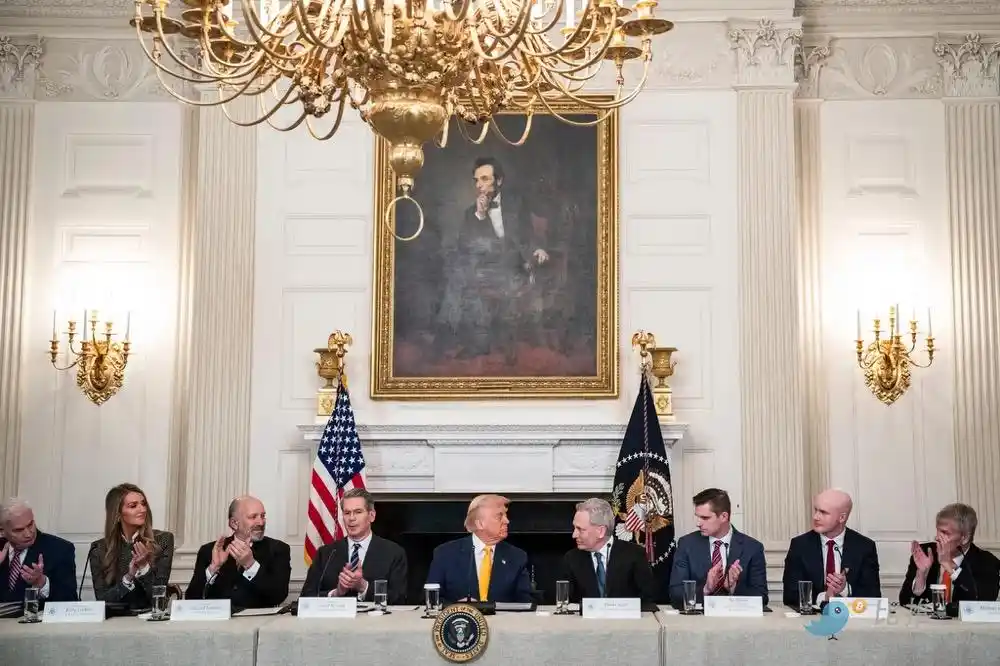
In March, Trump hosted a digital asset summit at the White House with his "A.I. and Crypto Czar" David Sacks and other government officials and tech executives. That dinner became a golden opportunity for Ripple.
Attendees included some who had dined with Trump in January, including Mr. Alderoty from Ripple and Ms. Nocco, an advisor to Ballard. As a regular at Trump's fundraising events, Ms. Nocco is married to a Florida county sheriff with close ties to Trump and maintains a friendly relationship with him, who affectionately refers to her as "the sheriff's wife."
According to six anonymous sources, on one evening in March, Ms. Nocco proposed to the president that Ripple's XRP also be included in the reserve, pointing out that the company had generously supported him.
Trump listened to her request. The morning after the dinner, he wrote on Truth Social that he had instructed a presidential task force to "advance the crypto strategic reserve" plan, which would include XRP, along with two other digital currencies—one related to Mr. Hoskinson's company (despite his invitation being canceled) and another related to Solana Labs.
This news shocked the crypto industry. The coins listed by Trump were not seen as being on par with Bitcoin. It was like placing a pile of copper coins next to gold bars in Fort Knox. Mr. Hoskinson and a co-founder of Solana Labs quickly distanced themselves from the idea. A spokesperson for Ripple did not respond to requests for comment.
Almost immediately, Trump was besieged by allies and advisors who told him he had been manipulated by the Ballard consultant working for Ripple, according to four informed sources. The price of Ripple's XRP surged by 33%—presidential aides pointed this out to him. (Some details of this incident were previously reported by Politico.) Amid strong opposition behind the scenes, crypto czar Mr. Sacks posted on X that Trump was planning to establish a reserve that included "Bitcoin and other top cryptocurrencies," consistent with his campaign promises.
Three minutes later, Trump supplemented his original post, expanding the list of coins to include Bitcoin and Ethereum (the second most valuable digital currency). He wrote, "I also love Bitcoin and Ethereum!" The direct beneficiary of this update was his family's crypto company, World Liberty Financial. The company had recently purchased a large amount of Ethereum, which increased in value by $33 million after the president's announcement.
Despite this, Trump felt he had been used and told aides he did not want Ballard or his team to participate in any fundraising activities again, according to two informed sources. Ballard later met with Trump at the White House to smooth over relations and subsequently appeared with Trump at several events.
Ultimately, the reserve plan took a more moderate form. On March 6, Trump issued an executive order establishing a federal reserve that included Bitcoin obtained by the government through legal seizures, promising to consider acquiring more Bitcoin in the future. Trump reviewed the documents in the Oval Office, with Mr. Sacks by his side.
"Is this something you completely believe in?" the president asked.
"One hundred percent," Sacks replied.
"And I made a promise, right?" Trump asked again.
"Of course," Sacks responded.
Trump then signed the order.
免责声明:本文章仅代表作者个人观点,不代表本平台的立场和观点。本文章仅供信息分享,不构成对任何人的任何投资建议。用户与作者之间的任何争议,与本平台无关。如网页中刊载的文章或图片涉及侵权,请提供相关的权利证明和身份证明发送邮件到support@aicoin.com,本平台相关工作人员将会进行核查。




